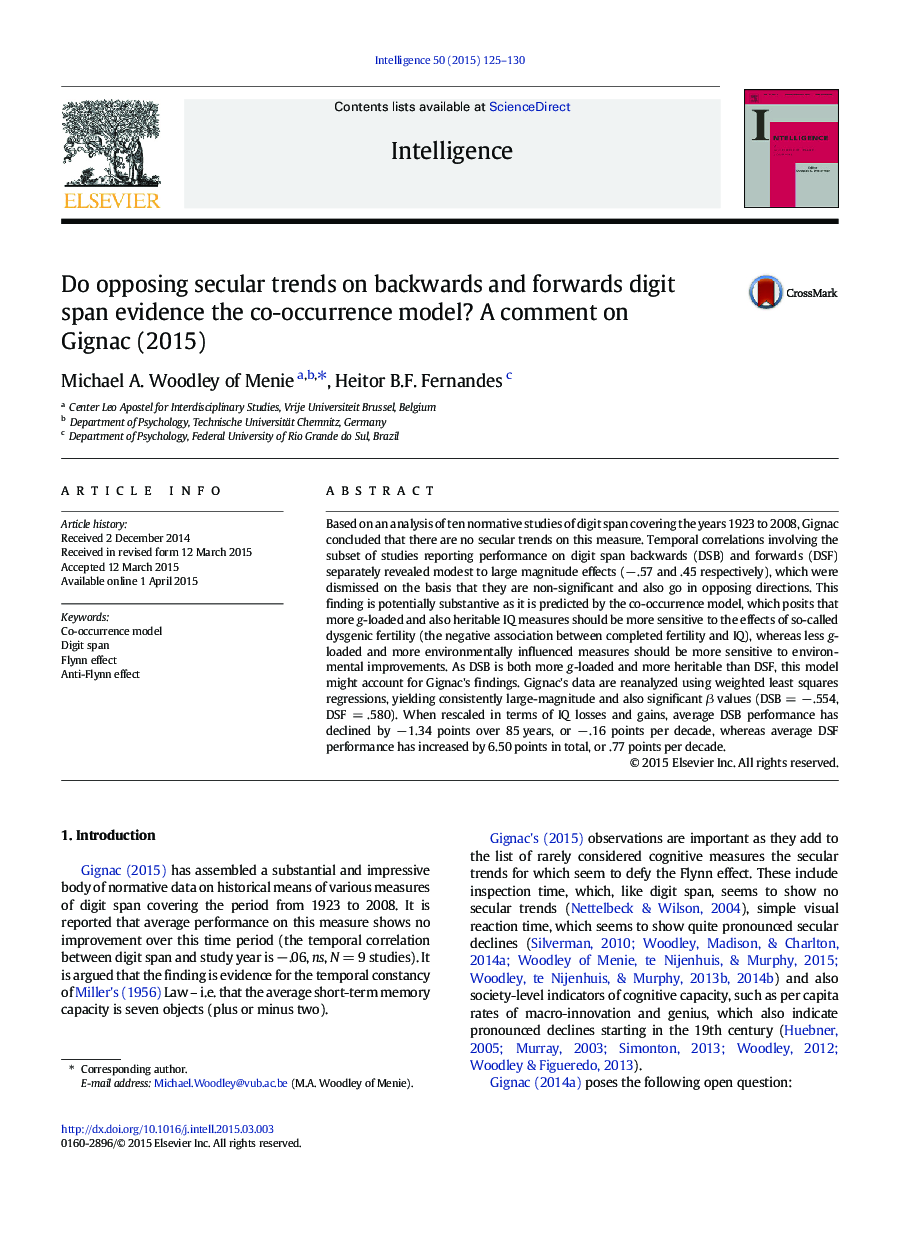| Article ID | Journal | Published Year | Pages | File Type |
|---|---|---|---|---|
| 7293931 | Intelligence | 2015 | 6 Pages |
Abstract
Based on an analysis of ten normative studies of digit span covering the years 1923 to 2008, Gignac concluded that there are no secular trends on this measure. Temporal correlations involving the subset of studies reporting performance on digit span backwards (DSB) and forwards (DSF) separately revealed modest to large magnitude effects (â .57 and .45 respectively), which were dismissed on the basis that they are non-significant and also go in opposing directions. This finding is potentially substantive as it is predicted by the co-occurrence model, which posits that more g-loaded and also heritable IQ measures should be more sensitive to the effects of so-called dysgenic fertility (the negative association between completed fertility and IQ), whereas less g-loaded and more environmentally influenced measures should be more sensitive to environmental improvements. As DSB is both more g-loaded and more heritable than DSF, this model might account for Gignac's findings. Gignac's data are reanalyzed using weighted least squares regressions, yielding consistently large-magnitude and also significant β values (DSB = â .554, DSF = .580). When rescaled in terms of IQ losses and gains, average DSB performance has declined by â 1.34 points over 85 years, or â .16 points per decade, whereas average DSF performance has increased by 6.50 points in total, or .77 points per decade.
Keywords
Related Topics
Social Sciences and Humanities
Psychology
Experimental and Cognitive Psychology
Authors
Michael A. Woodley of Menie, Heitor B.F. Fernandes,
